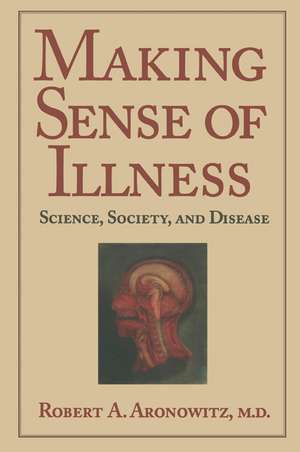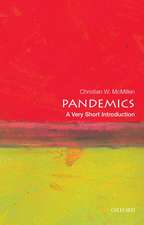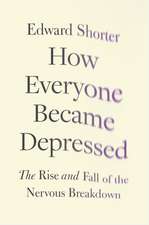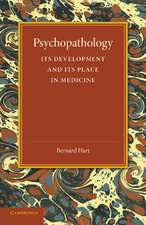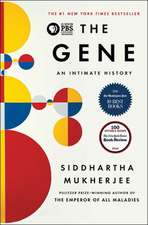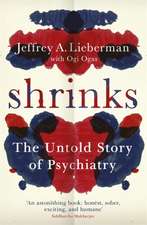Making Sense of Illness: Science, Society and Disease: Cambridge Studies in the History of Medicine
Autor Robert A. Aronowitzen Limba Engleză Paperback – 27 mai 1999
| Toate formatele și edițiile | Preț | Express |
|---|---|---|
| Paperback (1) | 283.01 lei 6-8 săpt. | |
| Cambridge University Press – 27 mai 1999 | 283.01 lei 6-8 săpt. | |
| Hardback (1) | 622.17 lei 6-8 săpt. | |
| Cambridge University Press – 12 feb 1998 | 622.17 lei 6-8 săpt. |
Din seria Cambridge Studies in the History of Medicine
- 5%
 Preț: 842.69 lei
Preț: 842.69 lei - 5%
 Preț: 328.68 lei
Preț: 328.68 lei -
 Preț: 286.69 lei
Preț: 286.69 lei - 5%
 Preț: 403.07 lei
Preț: 403.07 lei - 5%
 Preț: 263.87 lei
Preț: 263.87 lei - 5%
 Preț: 294.37 lei
Preț: 294.37 lei - 5%
 Preț: 837.35 lei
Preț: 837.35 lei - 5%
 Preț: 314.62 lei
Preț: 314.62 lei - 5%
 Preț: 344.98 lei
Preț: 344.98 lei - 5%
 Preț: 199.17 lei
Preț: 199.17 lei - 5%
 Preț: 336.86 lei
Preț: 336.86 lei - 5%
 Preț: 351.56 lei
Preț: 351.56 lei -
 Preț: 277.26 lei
Preț: 277.26 lei - 5%
 Preț: 301.61 lei
Preț: 301.61 lei - 5%
 Preț: 431.51 lei
Preț: 431.51 lei - 5%
 Preț: 422.85 lei
Preț: 422.85 lei - 5%
 Preț: 423.05 lei
Preț: 423.05 lei - 5%
 Preț: 858.07 lei
Preț: 858.07 lei - 5%
 Preț: 374.77 lei
Preț: 374.77 lei - 5%
 Preț: 745.59 lei
Preț: 745.59 lei - 5%
 Preț: 435.44 lei
Preț: 435.44 lei - 5%
 Preț: 309.58 lei
Preț: 309.58 lei -
 Preț: 447.05 lei
Preț: 447.05 lei - 5%
 Preț: 307.58 lei
Preț: 307.58 lei - 5%
 Preț: 900.51 lei
Preț: 900.51 lei - 5%
 Preț: 275.09 lei
Preț: 275.09 lei - 5%
 Preț: 399.56 lei
Preț: 399.56 lei - 5%
 Preț: 392.70 lei
Preț: 392.70 lei - 5%
 Preț: 425.23 lei
Preț: 425.23 lei - 5%
 Preț: 404.19 lei
Preț: 404.19 lei - 5%
 Preț: 349.34 lei
Preț: 349.34 lei - 5%
 Preț: 285.19 lei
Preț: 285.19 lei -
 Preț: 282.87 lei
Preț: 282.87 lei - 5%
 Preț: 306.74 lei
Preț: 306.74 lei
Preț: 283.01 lei
Preț vechi: 297.91 lei
-5% Nou
Puncte Express: 425
Preț estimativ în valută:
54.15€ • 56.69$ • 44.81£
54.15€ • 56.69$ • 44.81£
Carte tipărită la comandă
Livrare economică 05-19 aprilie
Preluare comenzi: 021 569.72.76
Specificații
ISBN-13: 9780521558259
ISBN-10: 0521558255
Pagini: 286
Dimensiuni: 152 x 229 x 20 mm
Greutate: 0.4 kg
Ediția:Revised
Editura: Cambridge University Press
Colecția Cambridge University Press
Seria Cambridge Studies in the History of Medicine
Locul publicării:New York, United States
ISBN-10: 0521558255
Pagini: 286
Dimensiuni: 152 x 229 x 20 mm
Greutate: 0.4 kg
Ediția:Revised
Editura: Cambridge University Press
Colecția Cambridge University Press
Seria Cambridge Studies in the History of Medicine
Locul publicării:New York, United States
Cuprins
1. Introduction; 2. The rise and fall of the psychosomatic hypothesis in ulcerative colitis; 3. From myalgic encephalitis to yuppie flu: a history of chronic fatigue syndrome; 4. Lyme disease: the social construction of a new disease and its social consequences; 5. From the patient's angina pectoris to the cardiologist's coronary heart disease; 6. The social construction of coronary heart disease risk factors; 7. The rise and fall of the type A hypothesis; 8. Conclusion.
Recenzii
"Making Sense of Illness succeeds as both a medical monograph and a book for the lay reader because it speaks to such deep matters of health and health care delivery, and accomplishes its task in relatively jargon-free language. This is a book for the thinking reader." The Washington Post
"This book will stimulate responses from both the ontologic and holistic camps...It should be especially appreciated by the new breed of academics incessantly involved in designing and redesigning the medical school curriculum." The New England Journal of Medicine
"The author of this very sensible book is no ideologue; he makes us think hard about interactions among social and biological determinants of disease meaning....Making Sense of Illness succeeds as both a medical monograph and a book for the lay reader because it speaks to such deep matters of health and health care delivery, and accomplishes its task in relatively jargon-free language. This is a book for the thinking reader." Harold J. Morowitz, The Washington Post
"Robert A. Aronowitz has written a challenging and most interesting short book perhaps best characterized as medical historicosociologic in scope...I hope that Making Sense of Illness will be widely read and discussed within our profession." Joseph S. Alpert, MD, JAMA
"...a doctor's effort to do justice...bringing us to our (clinical senses) so that we can appreciate the limits as well as the extent of our new knowledge." Robert Coles, The Lancet
"The great virtue of this book is the author's esential even handedness. He is an astute clinician...alert to the way new knowledge can becloud as well as inform..." Robert Coloe, The Lancet
"The author wants us to examine closely the way our thinking about diseases in the abstract effects our relationship with our patients...those broader social and cultural matters as they bear down on the daily encounters that take place in medical offices across the world, and especially among the priveledged, health-conscious bourgeoisie of the western world." Robert Coloe, The Lancet
"...in this century, we have acquired an astonishing body of knowledge about the mechanisms of various diseases, and this book in no way underestimates or undervalues that knowledge." Robert Coles, The Lancet
"...an insightful book focused on 20th-century medical developments and based on his own clinical experiences with chronic disease. ...should be read by everybody who cares for the future of medicine." Inquirer
"His argmumentation is lucid, temperate, and scholarly. His intention is to open his readers' eyes to the historical contingencies and unexamined assumptions that underpin medical knowledge. His case studies wil be substantively interesting to psychiatric audiences, but it would be a mistake to ignore the book's larger imlications for psychiatry. Aronowitz's splendid book points us in this direction." Allan Young, Ph.D., The Journal of Nervous and Mental Disease
"This book will stimulate responses from both the ontologic and holistic camps...It should be especially appreciated by the new breed of academics incessantly involved in designing and redesigning the medical school curriculum." The New England Journal of Medicine
"The author of this very sensible book is no ideologue; he makes us think hard about interactions among social and biological determinants of disease meaning....Making Sense of Illness succeeds as both a medical monograph and a book for the lay reader because it speaks to such deep matters of health and health care delivery, and accomplishes its task in relatively jargon-free language. This is a book for the thinking reader." Harold J. Morowitz, The Washington Post
"Robert A. Aronowitz has written a challenging and most interesting short book perhaps best characterized as medical historicosociologic in scope...I hope that Making Sense of Illness will be widely read and discussed within our profession." Joseph S. Alpert, MD, JAMA
"...a doctor's effort to do justice...bringing us to our (clinical senses) so that we can appreciate the limits as well as the extent of our new knowledge." Robert Coles, The Lancet
"The great virtue of this book is the author's esential even handedness. He is an astute clinician...alert to the way new knowledge can becloud as well as inform..." Robert Coloe, The Lancet
"The author wants us to examine closely the way our thinking about diseases in the abstract effects our relationship with our patients...those broader social and cultural matters as they bear down on the daily encounters that take place in medical offices across the world, and especially among the priveledged, health-conscious bourgeoisie of the western world." Robert Coloe, The Lancet
"...in this century, we have acquired an astonishing body of knowledge about the mechanisms of various diseases, and this book in no way underestimates or undervalues that knowledge." Robert Coles, The Lancet
"...an insightful book focused on 20th-century medical developments and based on his own clinical experiences with chronic disease. ...should be read by everybody who cares for the future of medicine." Inquirer
"His argmumentation is lucid, temperate, and scholarly. His intention is to open his readers' eyes to the historical contingencies and unexamined assumptions that underpin medical knowledge. His case studies wil be substantively interesting to psychiatric audiences, but it would be a mistake to ignore the book's larger imlications for psychiatry. Aronowitz's splendid book points us in this direction." Allan Young, Ph.D., The Journal of Nervous and Mental Disease
Descriere
This 1998 book contains historical essays about how diseases change their meaning.
